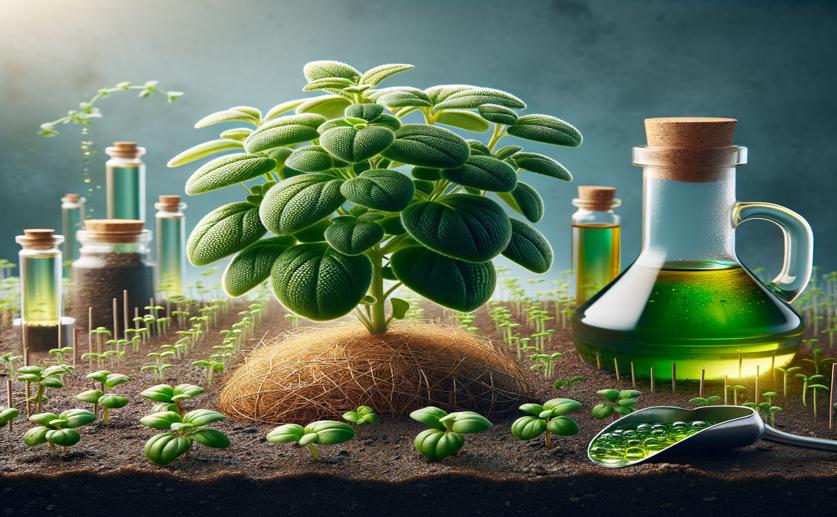
Green Manure Boosts Oregano Growth and Oil Quality
Jenn Hoskins
11th April, 2024

Image Source: Natural Science News, 2024
Key Findings
- In Brazil, green manure increased oregano's biomass and essential oil content
- Specific health-beneficial compounds in oregano's oils were boosted by green manure
- Using green manure is an eco-friendly way to enhance oregano cultivation
Plant ScienceAgricultureSpices
References
Main Study
1) Green manure (Crotalaria juncea L.) enhances Origanum vulgare L. biomass accumulation, essential oil yield, and phytochemical properties.
Published 10th April, 2024
https://doi.org/10.1590/0001-3765202420230539
Related Studies
2) Optimization of carvacrol, rosmarinic, oleanolic and ursolic acid extraction from oregano herbs (Origanum onites L., Origanum vulgare spp. hirtum and Origanum vulgare L.).
3) Dependence of the Concentration of Bioactive Compounds in Origanum vulgare on Chemical Properties of the Soil.
4) Essential oil diversity of Origanum vulgare L. populations from Southern Italy.
5) Terpinen-4-ol as an Antibacterial and Antibiofilm Agent against Staphylococcus aureus.



 29th February, 2024 | Jim Crocker
29th February, 2024 | Jim Crocker